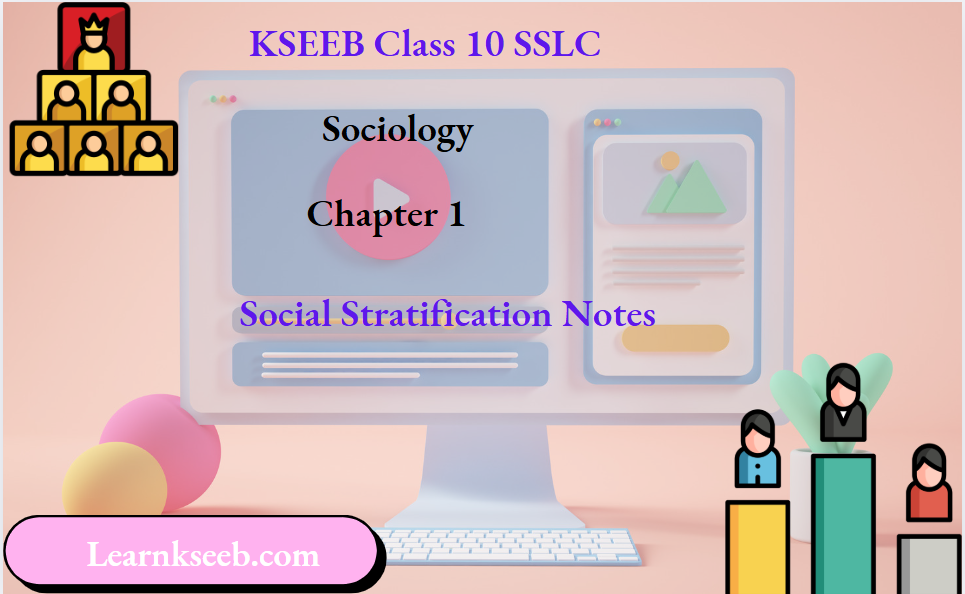KSEEB Solutions For SSLC Class 10 Sociology Chapter 1 Notes Social Stratification
The human takes birth in different places and grows up to become different from others due to the influence of the atmosphere, system, facilities and opportunities.
- The human society which was created by these differences led to a stratification based on those differences.
- Social stratification means the practice of classifying people on the basis of income, education, caste, colour, gender, occupation and intelligence.
- Diversity is the main feature of human society.
Class 10 Sociology Chapter 1 Social Stratification summary
- In India, the human society is divided into different castes and communities.
- The caste system has been in existence in India for thousands of years.
- This system determines whether any person belongs to the upper caste or to the lower caste (shudras).
- Shudras and untouchables were deprived of the right to food, employment and even the right to life.
- Stratification can be seen in all societies. For example, the blacks in America or Africa were not permitted to attend the schools of the whites.
- In India, untouchables were not allowed to take water from public wells or lakes.
- Prejudice is the opinion formed by a person about another person or community even before he gets to know them. This kind of opinion may be positive or negative.
- Social inequality leads to social conflicts.
KSEEB Class 10 SSLC Sociology Chapter 1 notes
Social Stratification: The practice of classifying people on the basis of income, education, caste, colour, gender, occupation, intelligence etc.
Occupation: Means of livelihood.
Segregation: The act of separating, especially when applied to separate people by race.
Prejudice: The opinion formed by a person about another person or community even before he gets to know them.
Stigma: A mark of the disgrace of infamy.

Social Stratification SSLC Sociology Untouchability A Social Evil
- Untouchability is an inhuman practice of human society. Mahatma Gandhi called it a ‘stigma’ on the Hindu society.
- The practice of untouchability is dying down as a result of the gradual increase in literacy.
- Jyotiba Phule, Swami Vivekananda, Mahatma Gandhi, Dr. B.R. Ambedkar and others made a great contribution to eradicate untouchability.
- At present, the Indian Constitution guarantees the provision of all facilities to people of all classes and castes.
- Section 17 of the Constitution prohibits the practice of untouchability. The Untouchability Crime Act’ was implemented in 1955.
- People belonging to backward castes, especially the scheduled castes or scheduled tribes have been provided reservation in educational, political, economic and employment opportunities.
Social Stratification SSLC Sociology notes
At present, India has been striving to provide equal opportunities to all its citizens.
Untouchability: The practice of discrimination based on a person’s birth in a particular caste.
Segregation: The act of separating, especially when applied to separate people by race.
Untouchables: A section of people of society considered out castes and socially discarded.
Scheduled Castes: Those castes who have been socially backward and economically weaker since ages and have also been subjected to social discrimination.
Universal suffrage: The right of almost all adults to vote in political elections.
